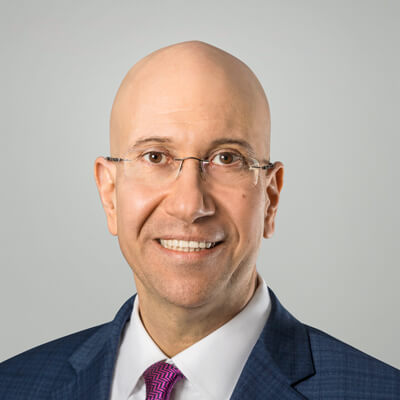Coffee & Cap
Rates Podcast
8/23/2023: Episode 80:
Host
Shimon Shkury
President and Founder
Featuring
Sean R. Kelly Esq.
Partner
Featuring
Alexander Taic
Director - Investment Sales
HOST

Shimon Shkury
President and Founder
Featuring

Sean R. Kelly Esq.
Partner
Featuring

Alexander Taic
Director - Investment Sales
*The following text has been automatically transcribed and may contain minor errors. For original content, listen to the podcast episode
Shimon Shkury: Hi everyone, this is Shimon Shkury with Ariel Property Advisors here at the podcast Coffee and Cap Rates, and today I have with me my partner Sean Kelly, as well as Alexander Taic, who's our director in Queens. Thank you both for being here today and participating in this overview of Queens. We've seen a really interesting transaction volume coming out of the first half of 2023 in Queens. In fact, it went up 40%, $2 billion of transactions. Kind of surprising where the rest of the market is coming down in terms of volume. Queens is doing exceptionally well. 13% better in multifamily, about 78% higher, half of the half in development. What's really happening there? Where are we seeing things in, let's say the development market? Why did it almost double half of the half? What do you think about that? Like Sanders.
Alexander Taic: For sure in the, Jamaica and Northwestern Queens as well as other parts of Queens really have that 421a appetite and there's a lot of opportunity there for these developers to jump in and start building as soon as possible. Since the 421a expired back in 2022 in June, there's still a little bit of time for them to transact and start building and completing their projects prior to the expiration of the 2026. These developers are hungry for some new sites for sure.
Shimon Shkury: Yeah. And we still want transaction that was exceptional and that was a little different than just a straightforward residential development. So on the one end you see 4 21 ends that are in the ground with footing ready to go being transacted, which is great. We're seeing that in Brooklyn. We've seen that in number locations in the city, not just Queens, but we also saw a major transaction go through this past six months. Can you elaborate a little bit more on that? Uh, maybe Sean can jump in here with that bigger transaction that happened on 20th Avenue.
Sean R. Kelly: Sure. Shimon. So there was a $286 million land sale. It was an acquisition by Ecuador and bp. The project is called Beacon Wind. This is an offshore wind project. This is really what propelled the dollar volume for the Queen's development market. If we look historically in the last five years, Queens has consistently been right around the billion dollars in transactional volume for development sites. At this pace it should hit the billion dollar mark, if not be higher than it. But even without this transaction, we're on pace to remain pretty consistently. Interestingly enough, buildable square footage pricing has come down significantly and I, I think that's because we've seen some more transactions in the Jamaica market where it's more geared towards middle income, lower income housing. And I think that that's been the drop off in price per buildable square foot. If you look in Long Island City values have remained very consistent. Alex and I are working on a sale of a project right now just outside of the Long Island City market. It's about a 50,000 foot project vested for 421a. And it's interesting the feedback we're getting in the market because um, this project is unique in the sense that it has the 421a, but there is no mandatory affordable requirement. So for the first time we're hearing developers talking about having a condominium fallback where normally lenders look at having a rental fallback on a condominium project, but this project pencils out both ways. It's gonna be interesting to see going forward for the rest of the year how many more sites come to the market and how flexible pricing becomes because developers have real risk in hitting that 421a deadline.
Shimon Shkury: You know what, that's a great point and it reminds me that Alexander started by talking about Northwestern Queens and Astoria, long Island City and Sunnyside and we've seen a lot of multifamily transactions a good amount actually more than the second half of 2022. Alexander, what contributed to that multifamily move up in transactions, if you will? What do you see today?
Alexander Taic: Oftentimes what we do see is that northwestern Queens is the top performer in Queens. It's been true for the past few years, if not longer. And what I would say in today's market, what's really driving these transactions is twofold. One is the HSTPA law that passed back in 2019, which really restricted a potential growth in the rent, uh, stabilized markets, both in, increasing, bottom line revenue as well as actual appreciation. But that was also counterbalanced with the increase in the interest rates, which unfortunately is gonna affect the debt service that these properties have. So owners are definitely taking a look at their portfolios and seeing where they potentially can either transact or maybe they might need to bring some money to the table if they have a, loan coming due within the next couple years. So I think a lot of these owners are taking a hard look at what they have and deciding that they need to come to market, which I think is really what's pushing the increase in transaction in dollar volume.
Shimon Shkury: That's super interesting and that you alluded to the rent stabilized specifically to the rent stabilized sub asset class and multifamily. What we also saw, as you and I spoke before, together with Sean, we've seen a huge affordable housing portfolio take place. Uh, that's the omni portfolio, which was more than 900 million. 91 million was in Queens and that's about approximately 20% of all of Queens multifamily transactions. It was another $39 million affordable with a Capital A transaction that took place. Lake bought it in the first six months. So very similar to what's happening throughout the city. I think we're seeing affordable housing taking place, some rent stabilized and also a lot of buildings that are smaller buildings that are transacting, that are tax class protected, mostly less than 10 unit. And as you said before, Alexander Northwestern Queens did super well. And I think part of it is because of the strong fundamentals. I mean we've seen the rental market there increase a lot. So let's just try to wrap it up and see what do we think is going to happen in the next, let's say six to 12 months in that specific market or in specific neighborhoods of Queens, where do you think we're gonna see transactions, volume, pricing? We know the macro, we can talk about that, but specifically for Queens, what do we see there, Alexander or Sean?
Sean R. Kelly: Sure. So I expect the development market to finish off the year strong like it has consistently year after year. I think we'll get close to the 800 to a billion dollar mark notwithstanding the $200 million transaction that was specific to the offshore wind project. And Shimon, something you touched on is the downward pressure on pricing throughout the city on rent stabilized product. And you know, in Queens we have a lot of long-term family office owners and we've seen some of those owners sell assets, right. Frustrated by the regulatory environment and taking capital and deploying it in different marketplaces throughout the country, particularly the southeast.
Shimon Shkury: Yeah, that's interesting. Some of them, them are actually selling us, some of them are buying assets, so it depends on which family you belong to, but some of them are also taking the buildings that Alexander's working on. For example, he's got a few buildings, one of them on 34th Street that's trying to sell and they're jumping in heads on into, into rent stabilize. But like you wanted to say something about moving forward and where we're gonna see things as well, right?
Alexander Taic: Yeah, absolutely. I think as both you and Sean alluded to, you know, the larger portfolios or larger multifamily assets are gonna be definitely coming to either on the market or they're going to, you know, hold on to these properties. I think as well that the smaller properties, the smaller multifamily and mixed use, it's gonna be high transactions for those being that a lot of potential buyers are very interested in these assets because of their free market status and they are all over the place in Queens with a lot of different pockets. Uh, I think that these assets are gonna be very well received by the market and potentially might be even pushing up the prices per square foot and holding down the cap rates a little bit lower when you compare them to the interest rate environment.
Shimon Shkury: That's great. That's good insight and not surprisingly increases experiencing the same macro elements as anywhere in the city. HT P F runs stabilized interest rates, but at the same time, Queens have its own way of development markets that are very unique and are doing really well compared to the rest of the city and fundamental rents that have grown, especially along the seven train line that keep investors on their toes and wanting to jump in and invest. So we think Queens is going to continue to do well even in the next six months, even in this more challenging market when it comes to interest rate. Thank you so much Sean, and thank you so much Alexander for being here. And thank you for all of our listeners.
